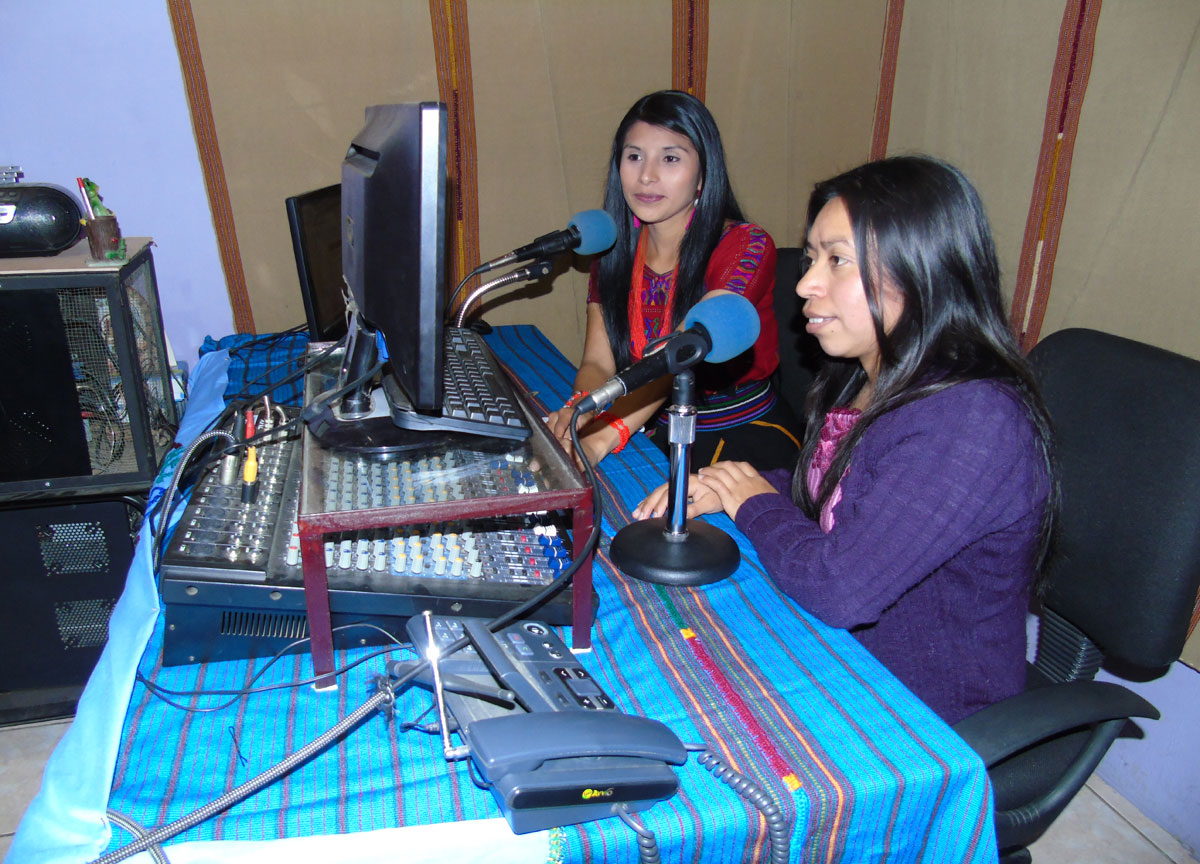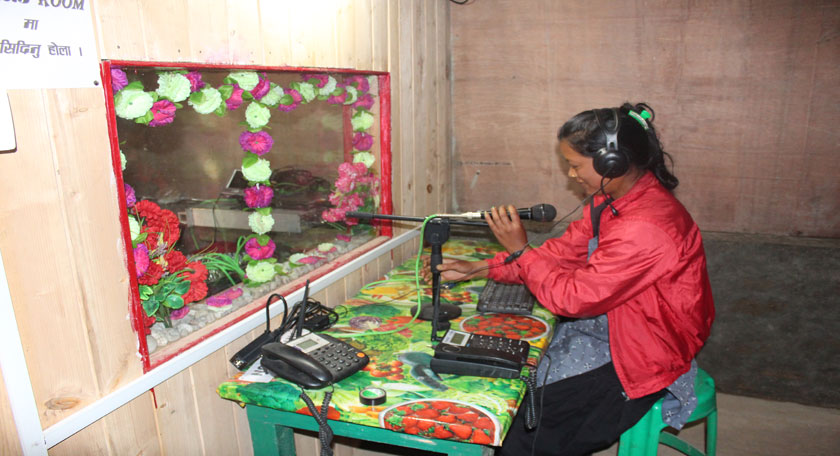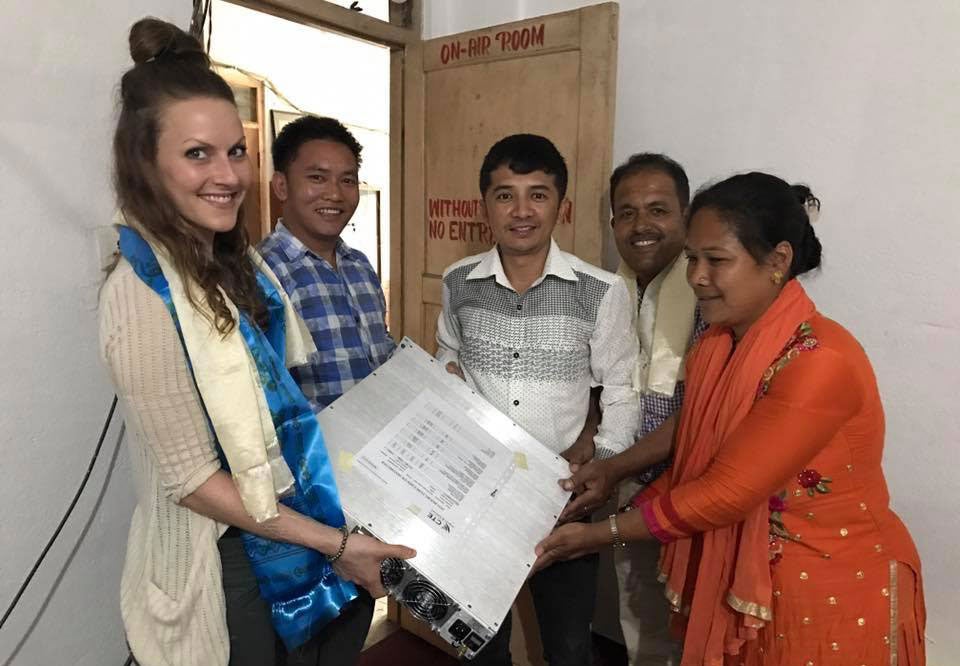Cultural Survival and Toronto-based WACC are pleased to announce the first round of grantees of our Community Media Grants Project Partnership, an initiative strengthening international Indigenous community radio stations' broadcast infrastructure and systems. Ensuring that Indigenous communities have a viable and critical medium for dissemination of news, information, community events, historical documentation, education and entertainment, the project aims to enhance community efforts to establish and ensure sustainability of Indigenous community-controlled media.
2017 Community Media Grant Recipients
Guatemala:
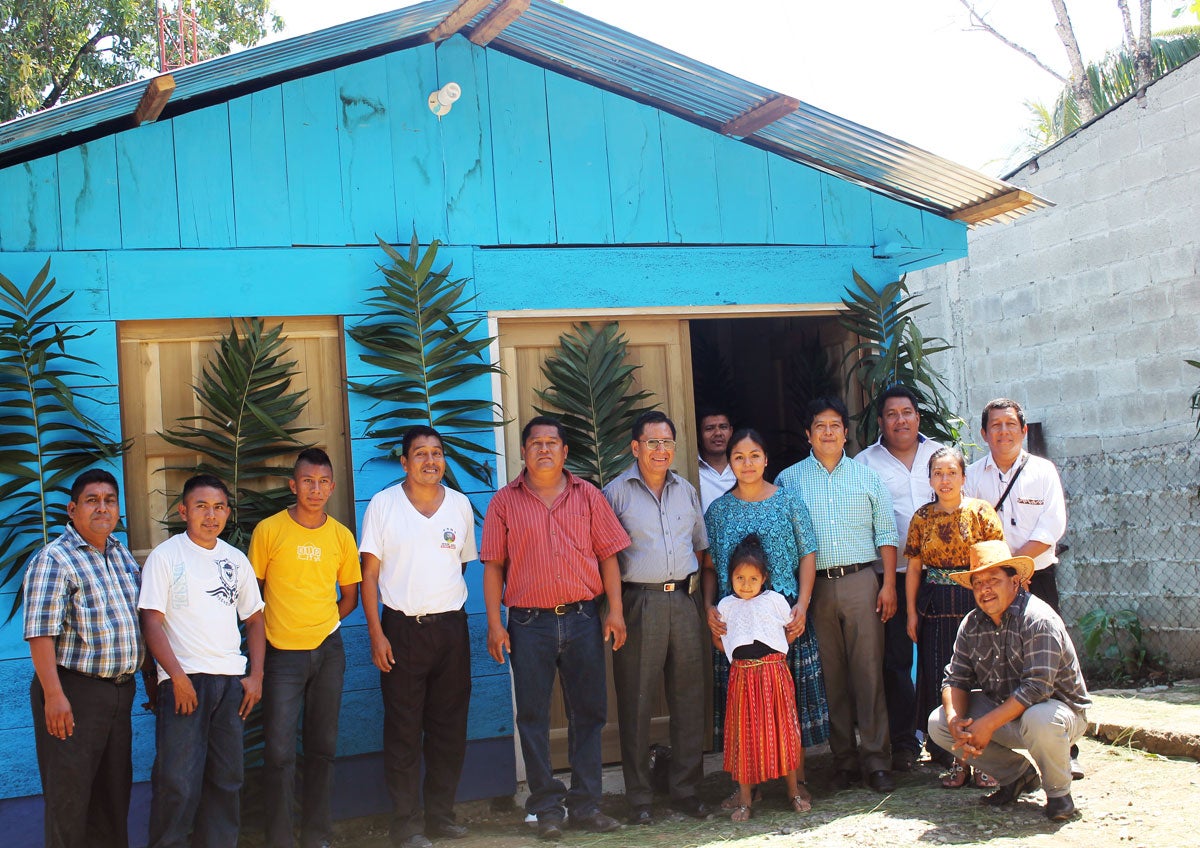
Launching Radio Xyaab' Tzuul Taq'a, El Estor, Izabal
In 2013, El Estor's Maya Councils determined that radio was an important means of communication and information for Q'eqchi people since television and the internet are highly monopolized by commercial interests and expensive. Funding will cover all radio equipment and training of radio volunteers in technical, radio production, and investigative journalism. The station will reach 140 Q'eqchi' communities with more than 45,000 people. Defensoria Q´eqchi´(AEPDI), a regional NGO implementing the project, is contributing to the project with the purchase of land for the station. Contact this project at: macloni@gmail, facebook: radio comunitaria Xyaab' Tzuul Taq'a, through their institutional website: www.aepdi.org.gt
Solar Power for Radio Nimlajacoc, Alta Verapaz
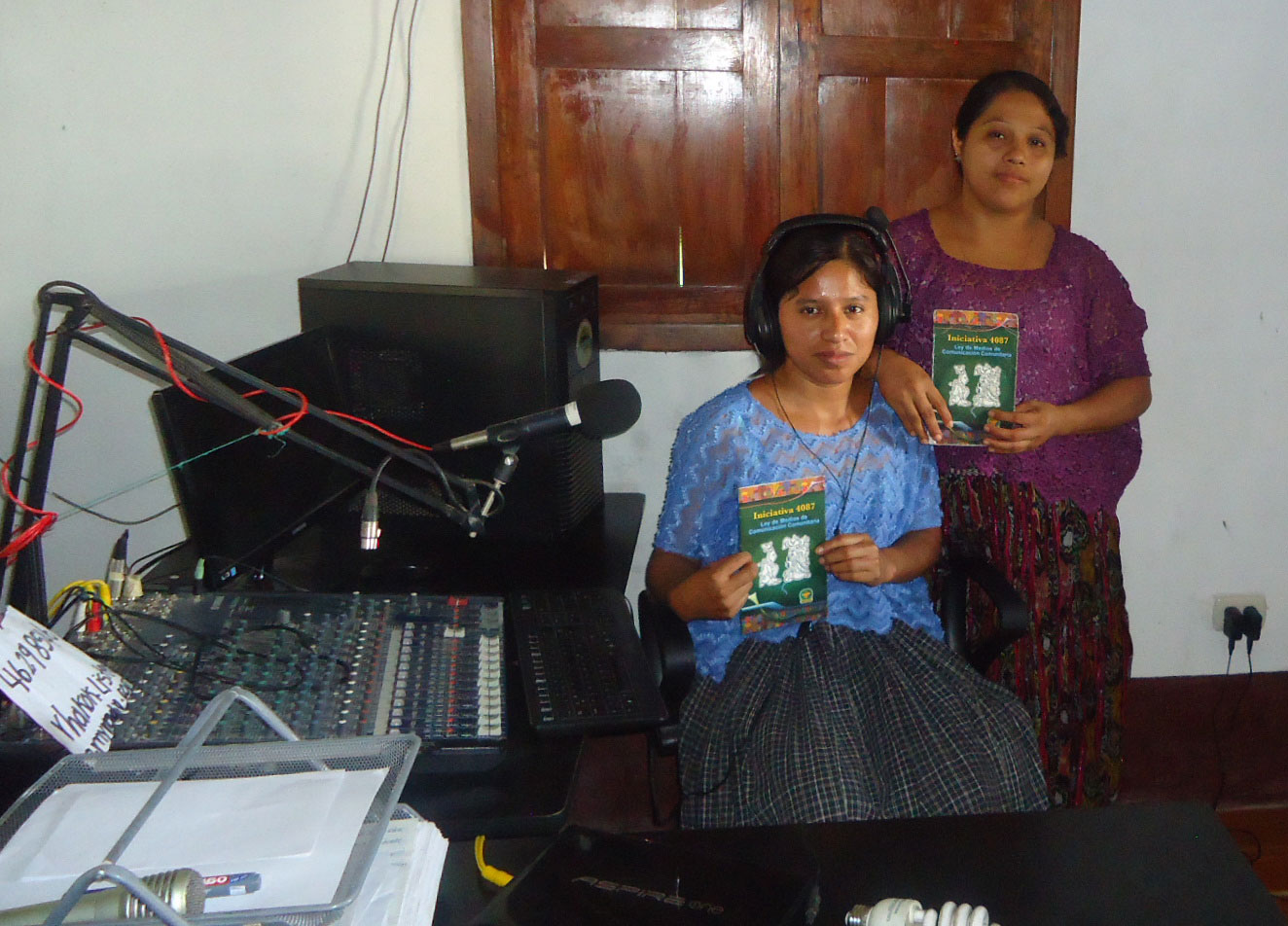
Radio Nimlajacoc has been serving the Q'eqchi' community since 2012, running on a generator because there is no electricity in the community. The station has frequently expressed their dream of becoming a solar-powered radio, decreasing their carbon footprint and increasing their daily on air hours. Since the purchase of the solar panels in December of 2016, they now broadcast from 5am to 7pm and are training volunteers in radio and solar panel maintenance.
Contact the project at (502) 4975-8023, zamy.caal10@gmail.com , facebook: Radioo Comunitaria Nimlajacoc.
Amplifying the Voices of Children in Community Radio
Radio Ixchel is a Kaqchikel radio functioning since 2003 and takes pride in their women, youth and rights focus. It is the first radio in the country to train Indigenous children in radio production, freedom of expression, art, Maya identity and children's rights in hopes of including more voices of children and an opportunity for their creativity on air. The grant also supports a new training center in community radio that will also function as a Cafe Internet to cover basic costs to run the station.
Radio Ixchel's facebook is: Ixchel Estereo Sumpango
email: ixchelradio@gmail.com
Tel: Elsa Chiquito: 53932647
Promoting Free, Prior and Informed Consent at Radio Xilotepek, San Luis Jilotepeque, Jalapa
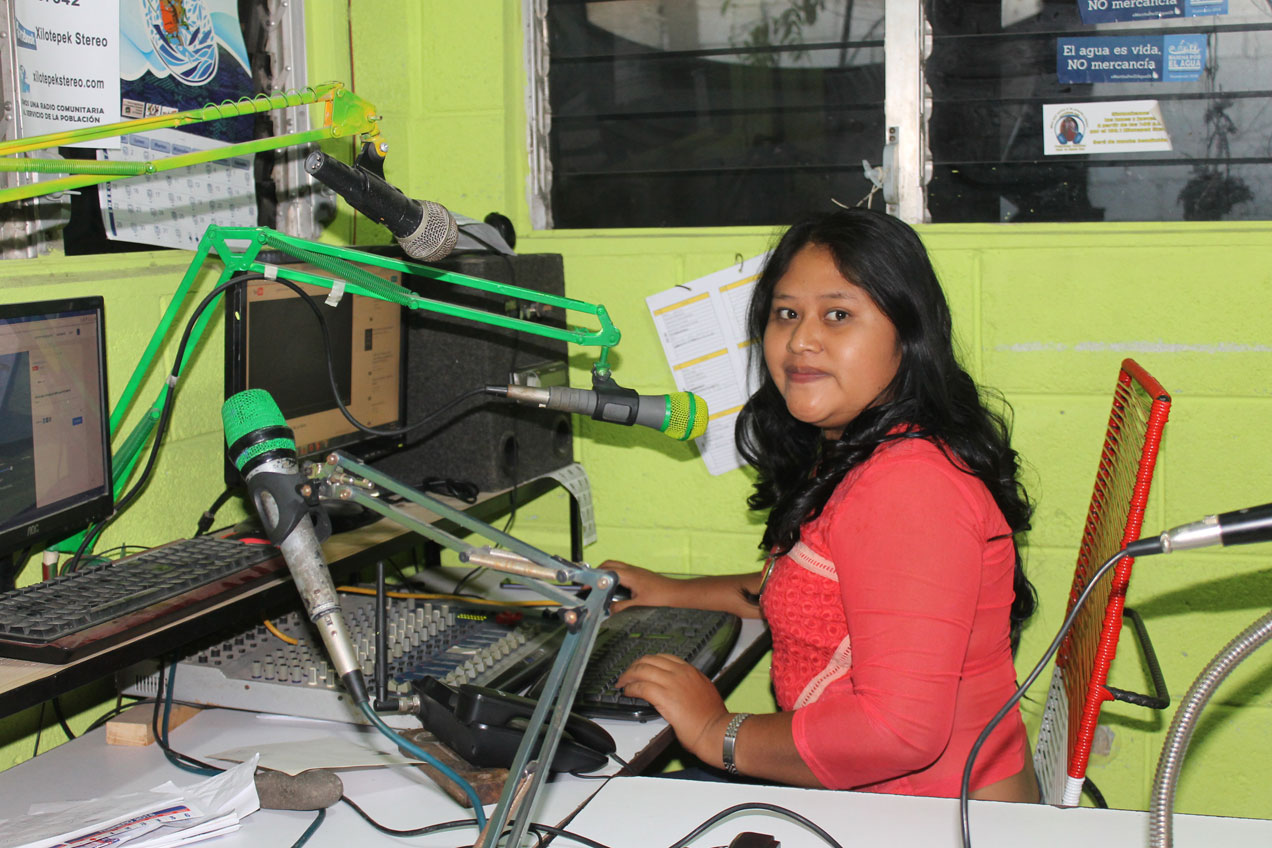
Radio Xilotepek is in San Luis Jilotepeque, Jalapa, Guatemala and is a Poqomam community Station, serves 30,000 residents in Jalapa. Confronted by the growing mining industry in the region, radio has been an important tool for informing communities about the Right to Free, Prior and Informed Consent (FPIC) in the face of growing extractive industries. The grant is funding 12 workshops on investigative journalism, technical training fo 20 current radio journalists, he organization of a community forum on mining and FPIC, and will cover the purchase of audiovisual equipment.
Contact:
facebook: Xilotepek Stereo
email: xilotepek.stereo@gmail.com
Tel: 502-54803744
Revitalizing the Kaqchikel Language at Radio Sinakan, Chimaltenango
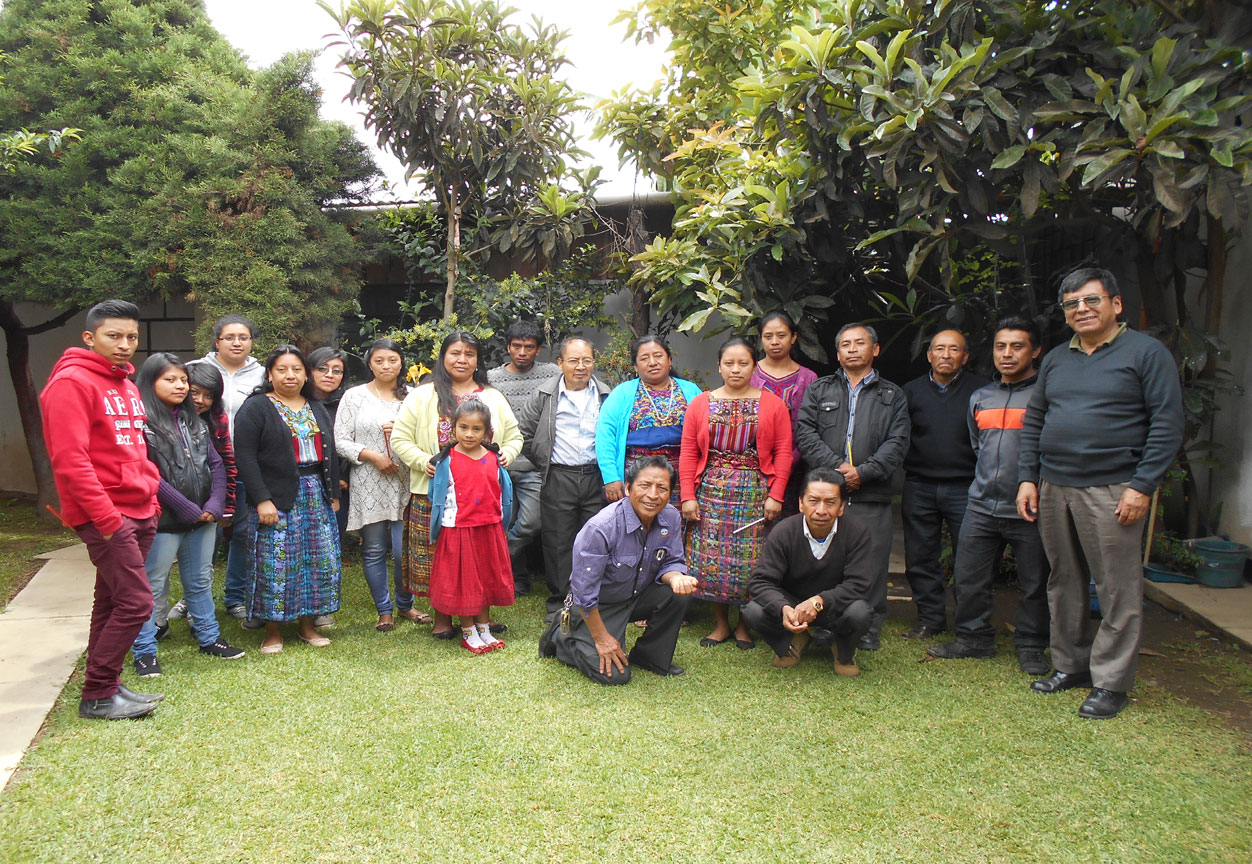
Radio Sinakan, in Patzun, Chimaltenango, Guatemala is being used to bring back and strengthen the Kaqchikel language and philosophy in Patzún. The grant will fund the purchase of a radio tower and a better antena, improving the radio signal and extending the broadcast range. Funding will also cover training workshops in broadcasting for women to increase their participation at the station as currently there are no women in their pool of volunteers and at the same time expand their broadcasting time.
Contact:
Radio Sinakan: khgsombra@hotmail.com or 502-4975-6977
Radio Nan Pix "Strengthening Capacity among Youth in Community Radio"
San Idelfonso Ixtahuacan, Huehuetenango, Guatemala is a Maya Mam community with a more than half of its population being younger than 18 years old. The challenges of poverty and massive migration to Mexico and the States have made Radio Nan Pix envision better for their youth through communication. This grant aims to reach out youth and develop further their capacities to become part of the radio team and voice their needs and interest as youth through youth programming. Another goal is to influence municipal public policy to support youth in their jurisdiction.
Contact Radio Nan Pix at: pjulieta@gmail.com
Peru:
Amplifying the Voices of Union de Mujeres Aymaras de Abya Yala (UMA), Puno
Union de Mujeres Aymaras de Abya Yala, a group of 22 Indigenous campesino women devoted to increasing women's political participation and the empowerment of women, use radio as a medium for bringing women's voices to the public. Until now they have been renting air space at a local commercial station. The grant will double their airtime on the radio, give them access to a radio cabin for production and editing, fund one national and one international community radio exchange, and provide opportunities for more women to become community broadcasters from an Indigenous feminist perspective. This grant will also support UMA's first steps towards requesting a radio frequency. Contact UMA at their facebook address: Union de Mujeres Aymara de Abya Yala or email at Yenipaucarsumita@gmail.com
Nepal:
Empowering the Indigenous Voice of the Himalayas, Radio Kairan
Since 2013, Radio Kairan has been serving 36 remote Indigenous villages in the Himalayas with programming in Tamang, Sunuwar, Sherpa, Nepali and English. The radio is the only source of information for these communities that lack access to government services, media, including telephone and internet. The radio played an important role following the 2015 earthquake, serving as a facilitator between earthquake victims, broadcasting about their needs and struggles. According to radio staff, they receive over 200 written letters every month with information that community members wish to share on the radio. The grant is supporting the radio with new equipment a transmitter, computers, a recorder and audio mixers. As well, two women from the radio, alongside the radio director and radio chair are participating in a gender policy development training, to follow the women’s empowerment training, which is training 30 women across the country in the basics of radio journalism. This gender policy will ensure women’s equal participation and involvement in the radio, an issue both for this radio and across the country. Contact radio Kairan at: radiokairan@gmail.com, www.radiokairan.com and facebook: radiokairan.radiokairan.
Empowering the Indigenous Voice of the Himalayas, Radio Namobuddha, Devisthan
Radio Namobuddha is a model community radio that was launched in 2007 by an Indigenous community in Dhulikhel, Kavre district. The radio produces programs in 10 different languages (Tamang, Danuwar, Majhi, Hyolmo, Sherpa, Newar, Magar, Nepali, English). Radio Namobuddha used to run 18-hours a day and would reach over a million listeners from 12-districts, but since 2012, the radio was forced to reduce its broadcasting hours to 12-hours per day due to an inadequate transmitter. Since its inception, Radio Namobuddha has been able to foster the participation of local communities by bringing to light the issues affecting their lives, creating a forum for sharing ideas, debate, and discussion. Following Nepal’s deadly earthquake of 2015, Radio Namobuddha created a space for a 'community information center' and used the radio as a platform for victims who would visit the center and share and broadcast their grievances. The grant is supporting the radio with new equipment a transmitter, computers, a recorder and audio mixers. As well, two women from the radio, alongside to the radio director and chair are participating in a gender policy development training, to follow the women’s empowerment training, which is training 30 women across the country in the basics of radio journalism. This gender policy will ensure women’s equal participation and involvement in the radio, an issue both for this radio and across the country. Contact radio Namobuddha@gmail.com, www.radionamobuddha.org
Empowering the Indigenous Voice of the Himalayas, Radio Likhu
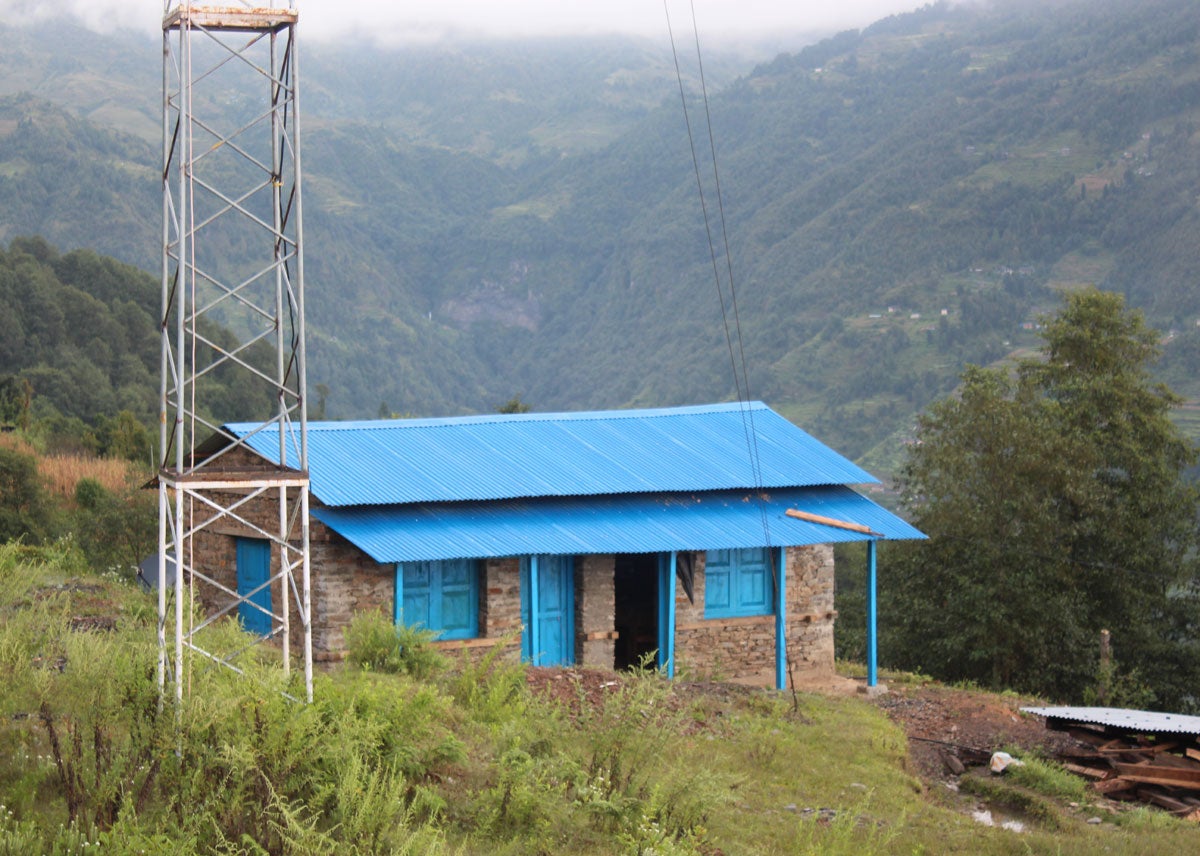
Radio Likhu is a Sunuwar community radio serving Indigenous communities in 18 remote villages, since 2013. It is located in a village with no access to internet or other means of information, education, health, and entertainment. The radio was founded by the Koĩts-Sunuwar community, which has population of 57,000 across Nepal. The radio lacks sufficient studio space and current staff must walk almost an hour to access the radio everyday. This project is supporting the construction of larger studio closer to the community to help combat this problem, in addition to fulfilling some basic equipment needs. As well, two newly trained Indigenous women broadcasters, alongside the radio director and chair are participating in a gender policy development training, to follow the women’s empowerment training, which is training 30 women across the country in the basics of radio journalism. This gender policy will ensure women’s equal participation and involvement in the radio, an issue both for this radio and across the country. Radio Likhu can be reached through facebook at Radio-Likhu-913-MHZ-702747796-4047793.
Empowering the Indigenous Voice of the Himalayas, Radio Sumhatlung
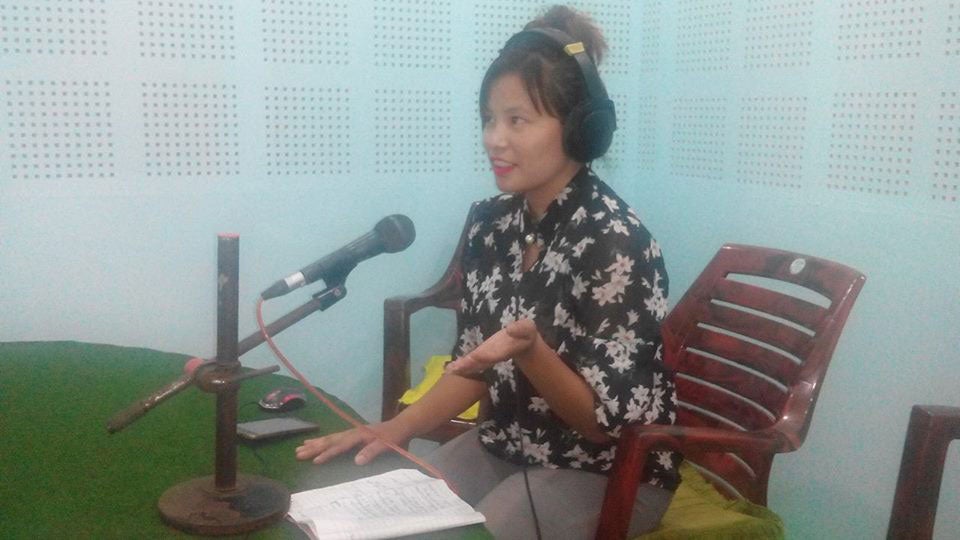
Radio Sumhatlung 104.2 MHz was founded by Limbu indigenous activist based in Pachthar, a remote eastern district in Nepal. The radio produces programming in Limbu, Tamang, Sherpa, Magar and Nepali. The station provides coverage on almost all indigenous peoples’ events organized in the district headquarter and the Indigenous Peoples are satisfied with its performance. The radio produces a program called Adivasi Sawal, which focuses on contentious issues for indigenous peoples’ being discussed in policy, law, constitution making process. As well, it produces a weekly Indigenous voice program, which covers wide range of rights of indigenous peoples guaranteed under Constitution, including ILO Convention 169 and UNDRIP. It is serving to 700,000 listeners across 6 remote districts in eastern Nepal. The grant is supporting the radio with new equipment. As well, two women from the radio, alongside the radio director and radio chair are participating in a gender policy development training, to follow the women’s empowerment training, which is training 30 women across the country in the basics of radio journalism. This gender policies will ensure women’s equal participation and involvement in the radio, an issue both for this radio and across the country. Radio Sumhatlung can be reached via facebook at sumhatlung.
Promoting Indigenous Women's Voices in Nepal Community Radio Project
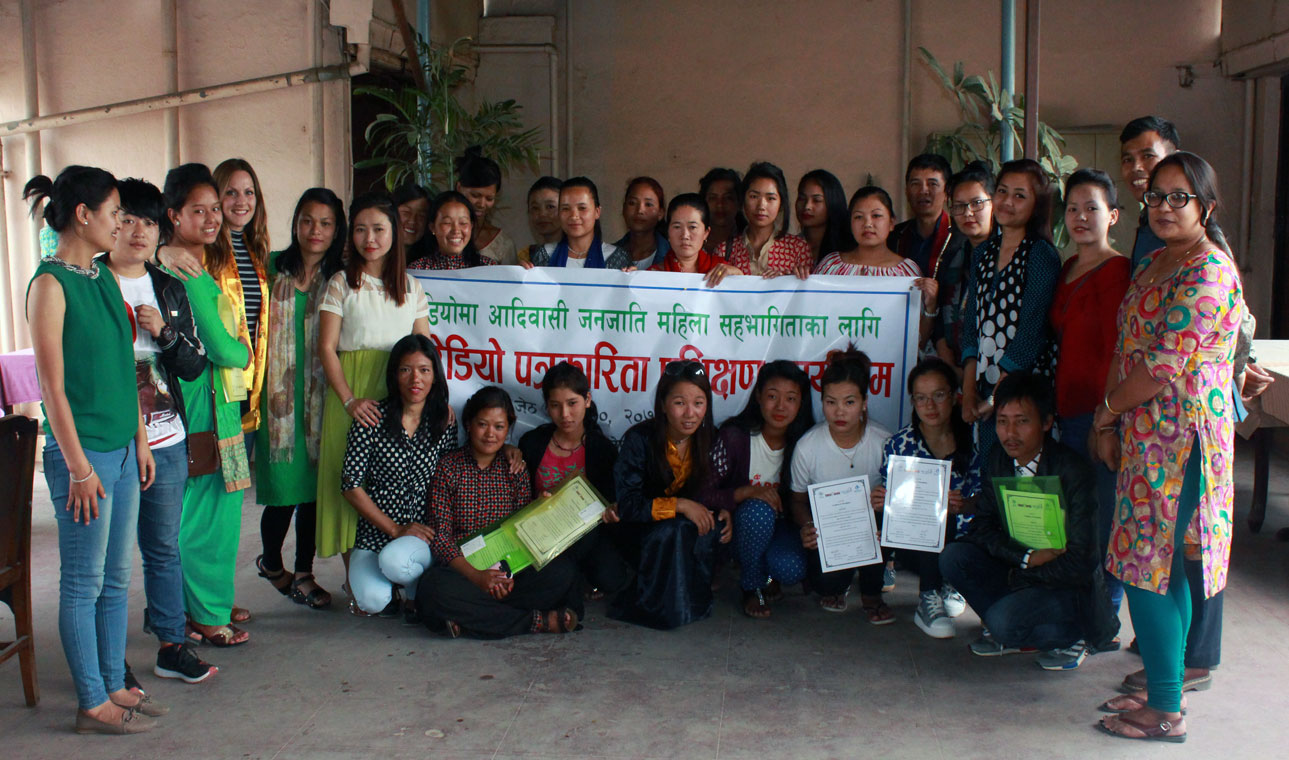
Indigenous women in Nepal continue to be marginalized and underrepresented in the media. This project has built capacity for 28 Indigenous women from 11 different ethnic groups through a 5-day intensive radio journalism training. Cultural Survival conducted an assessment of needs in preparation for this project and found that the most important skills that women need are field reporting, news gathering, management, audio production and marketing skills and the history and current issues of Nepalese women, including human trafficking. This training had the support of renowned and respected Indigenous facilitators.
The training aims to increase the representation of Indigenous women in community radio, including in management roles. The grant will also support women's production of radio programs focused on Indigenous women's issues.
Education on New Laws, Policies and National Rights of Indigenous Peoples, Kenya
Reto Women Association is an organization that was founded in 1986 to promote the political, social and economic empowerment of women in Kenya and Tanzania. Through their grant, Reto Women Association is educating Indigenous communities on recently passed laws that impact their rights as Indigenous Peoples through a mix of public forums and the production and transmission of radio programs at Serian FM, a community radio that reaches 4 different Indigenous communities in Kenya. The project specifically deals with education on the Wildlife Act and the Community Land Act, two laws that are impacting Maasai and Samburu communities in Kenya, having far reaching consequences for regarding their hunting rights and their rights to defend themselves against wildlife.
Radio Azacualpa, "The Voice of Women", Intibucá, Honduras
Radio Azacualpa is a community radio of a group of Lenca women in Intibucá, Honduras. This community radio is part of their long-term goal to create sustainable communities with the vision and participation of organized women. This group of women is part of a local project that has been in existence for a few years and looks for economic alternatives for women and their families. Radio will support women to have an organized voice in Intibucá to talk about their needs and possible alternatives. In addition, the radio will serve as a means to promote rights of women, Indigenous Peoples rights, and especially, the rights of Lenca People in Honduras. Radio Azacualpa is part of Community Media Association in Honduras (AMCH) and is member of the Central American Network of Indigenous Radios.
Radio Taragual, La Iguala, Lempira, Honduras
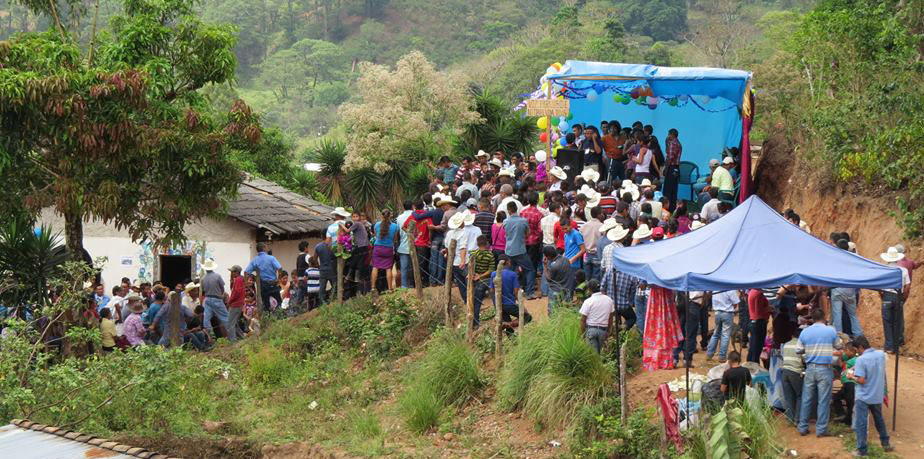
The community of Taragual is composed of 2,500 Indigenous people who have a strong connection to agriculture and look for ways to establish their own development. With minimum equipment and with a powerful will to volunteer, the community applied and got a radio frequency from the Honduran government and established Radio Taragual, an Indigenous community radio. With Cultural Survival's grant, this community will have a better quality of signal, sound and reach to listeners as their previous equipment was very basic. The grant also will allow further training to radio members to produce better quality of radio production and field reporting. Another opportunity for radio members is to improve their knowledge in women's issues, gender equality and increase participation of women in radio.
Radio Wangki Tangi, Waspam, Nicaragua
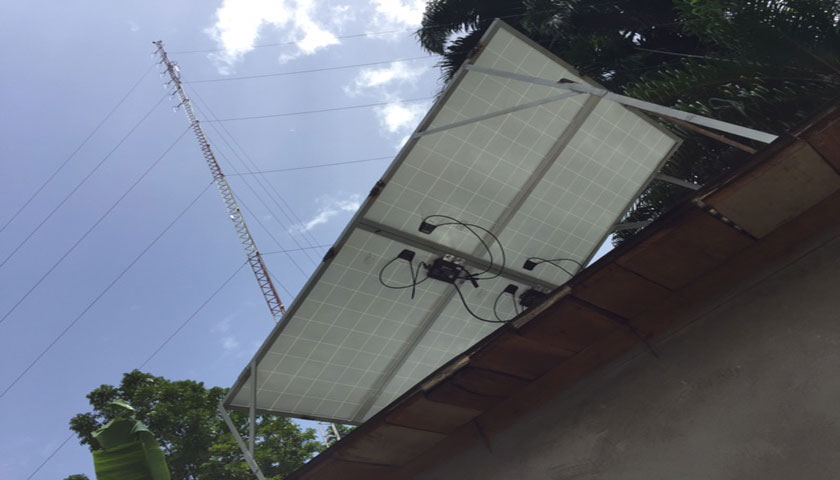
Radio Wangki Tangi is a community radio with an Indigenous women identity. Radio is part of a larger project of Wangki Tangi Asla Takanka NGO, which goal is to eradicate violence against women and increase the exercise of women's rights and Indigenous rights in the eastern region where Miskito women live and experience high levels violence. This radio has been successful in speaking the many different voices of women, their stories, needs, and issues and has the support from women in the region and beyond. However, radio programs are broadcasted in a limited number of hours as they get their energy from a diesel-powered electric generator. This grant is allowing Wangki Tangi to purchase solar panels to reduce costs in energy, increase 15 more hours of air time and reduce the carbon footprint of the radio. Solar Panels also guarantee the self-sustainability of the radio for the long term and support more women's programs and inclusion of women in radio.
Panama:
Securing Frequencies for Indigenous Radio Stations
With the support of partner organization, Voces Indigenas Panama, work is currently being conducted in securing legal radio frequencies for four community radio stations in the communities of Kankintu, Kusapin, Sambu and Arimae. In addition, women from each community will be enrolled in a diploma program in broadcasting and radio administration.
Technical Study for Indigenous Community Radio Stations
With this grant, Fundación Comunicándonos from el Salvador is conducting a radioelectric study in two Indigenous regions of Panamá where two community radios are going to be eventually be established, Comarca Emberá and Comarca Ngobe Bugle. Funding will also support the technical and economic plan for the implementation of the new radio and its basic technical infrastructure for the two community radio.
